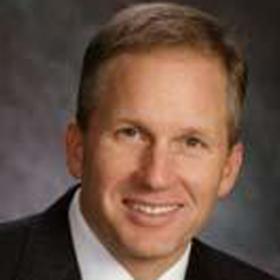
Towards Rules for Governing Cyber Conflict
First Joint Russian-U.S. report on Cyber Conflict
The EastWest Institute released the first joint Russian-American report aimed at defining the “rules of the road” for cyber conflict. Prepared by a team of Russian and U.S. experts convened by EWI, Working Towards Rules for Governing Cyber Conflict: Rendering the Geneva and Hague Conventions in Cyberspace explores how to extend the humanitarian principles that govern war to cyberspace.
“Today, nearly all critical civilian infrastructure is online, from the electricity grids that support hospitals to the systems that guide passenger planes through the air,” says EWI Chief Technology Officer and Distinguished Fellow Karl Rauscher, who led the U.S. experts group. “And, by and large, it is not protected by international norms.”
Rauscher and Andrey Korotkov, the leader of the Russian experts group, are the principal co-authors of the report. They led the cyber and traditional security experts through a point-by-point analysis of the Geneva and Hague Conventions. Ultimately, the group made five immediate recommendations for Russian and U.S.-led joint assessments, each exploring how to apply a key convention principle to cyberspace, each focused on a crucial question:
- Can protected critical humanitarian infrastructure entities be “detangled” from non-protected entities in cyberspace?
- Just as a Red Cross designates a protected entity in the physical world, is it feasible to use special markers to designate protected zones in cyberspace?
- Should we reinterpret convention principles in light of the fact that cyber warriors are often non-state actors?
- Are certain cyber weapons analogous to weapons banned by the Geneva Protocol?
- Given the difficulties in coming up with an agreed definition for cyber war, should there be a third, “other-than-war” mode for cyberspace?
In the report, the five joint Russian-U.S. recommendations also include essential background information, required commitments, benefits of implementation, next steps and measures of success.
“Our hope is that these recommendations will provoke a broad international, cross-sector debate on the very hot topic of cyber conflict,” says Korotkov.
The report is the first product of an ongoing EWI Track 2 bilateral program that seeks to open dialogue, build sustainable trust and have a positive impact on cybersecurity. In addition to engaging Russia and the United States, EWI is also working with a range of experts from the Cyber40, the world’s most digitally-advanced countries. Next up? Bilateral and multilateral working group sessions to implement the recommendations, followed by the Second Worldwide Cybersecurity Summit in London in June.
“We do this work very much in the spirit of the reset,” says Rauscher. “These recommendations carry great potential for engaging the international community, because when Russia and the U.S. speak together, the world listens.”


